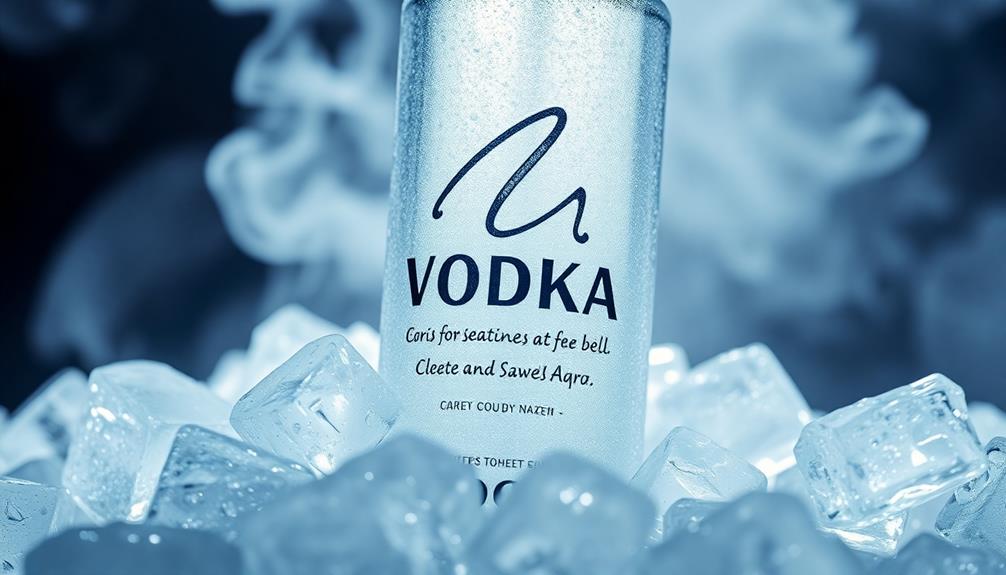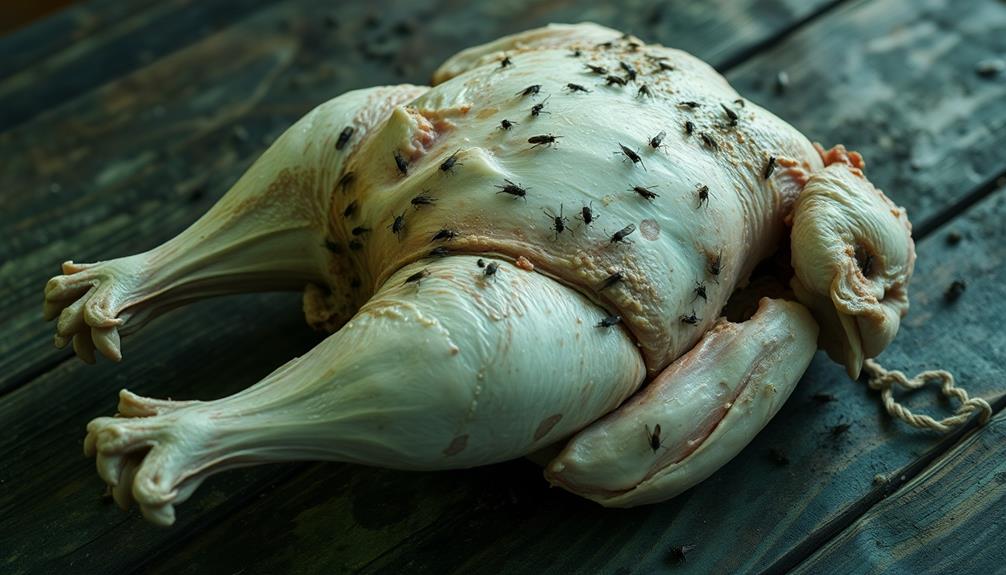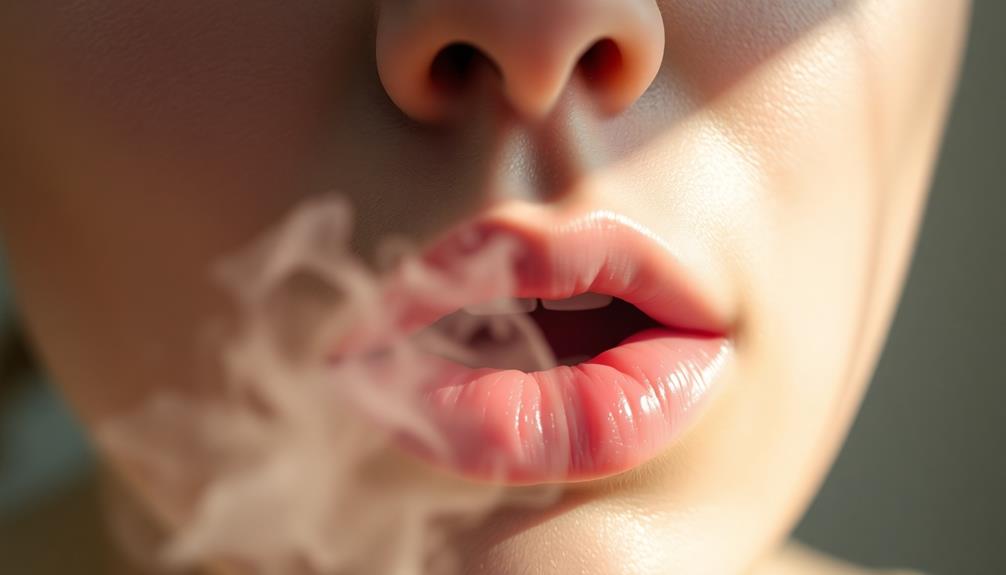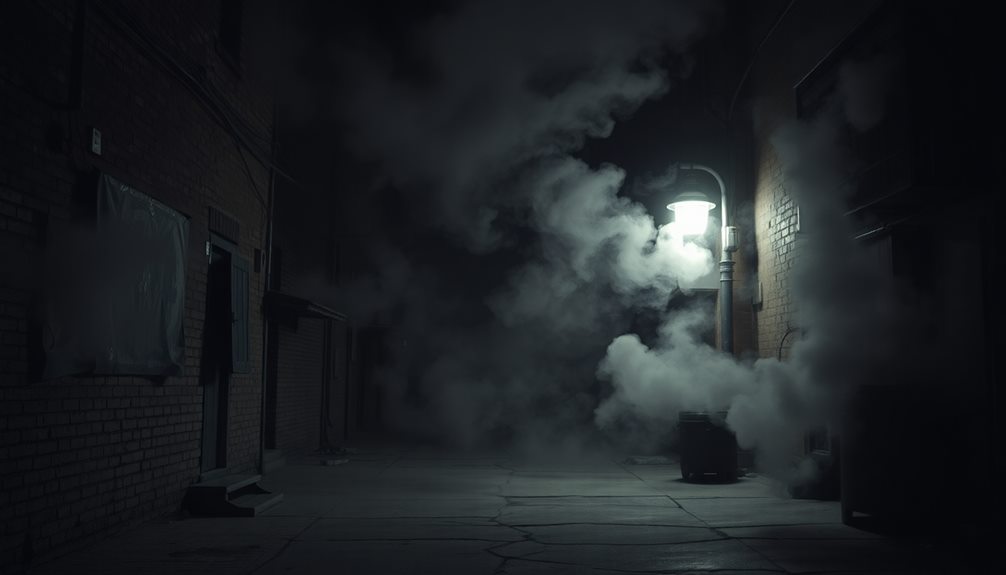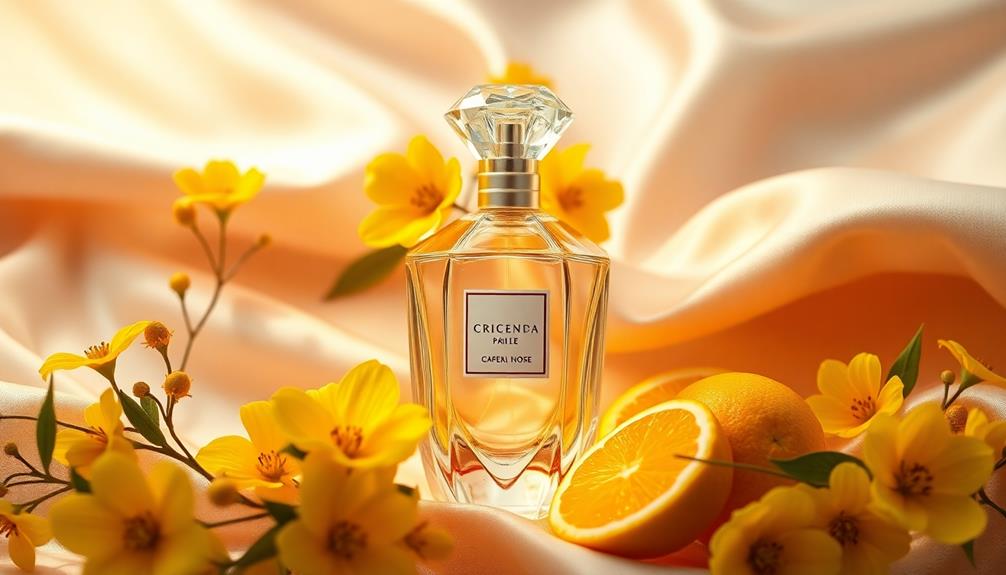Vodka usually has a faint, clean scent, often likened to diluted ethanol. It's one of the least smelly spirits, especially when compared to others. Higher-quality vodkas tend to have a smoother aroma, while cheaper options may retain more of the original ingredients' smells. When consumed, vodka's scent can linger on your breath for up to an hour, especially if you've had a lot. In crowded places, like bars, the smell blends with other aromas, making it less noticeable. If you're curious about how different types of vodka smell, there's much more to explore about this fascinating drink!
Key Takeaways
- Vodka has a faint, clean scent reminiscent of diluted ethanol and is often odorless in high-quality brands.
- The aroma varies based on ingredients like corn or rye, with high-quality distillation neutralizing most odors.
- Drinking vodka neat emphasizes its ethanol aroma, while chilled vodka minimizes scent.
- After consumption, the smell can linger on breath for about an hour and longer with excessive drinking.
- Social contexts and cultural associations can influence how vodka's scent is perceived by individuals.
Introduction
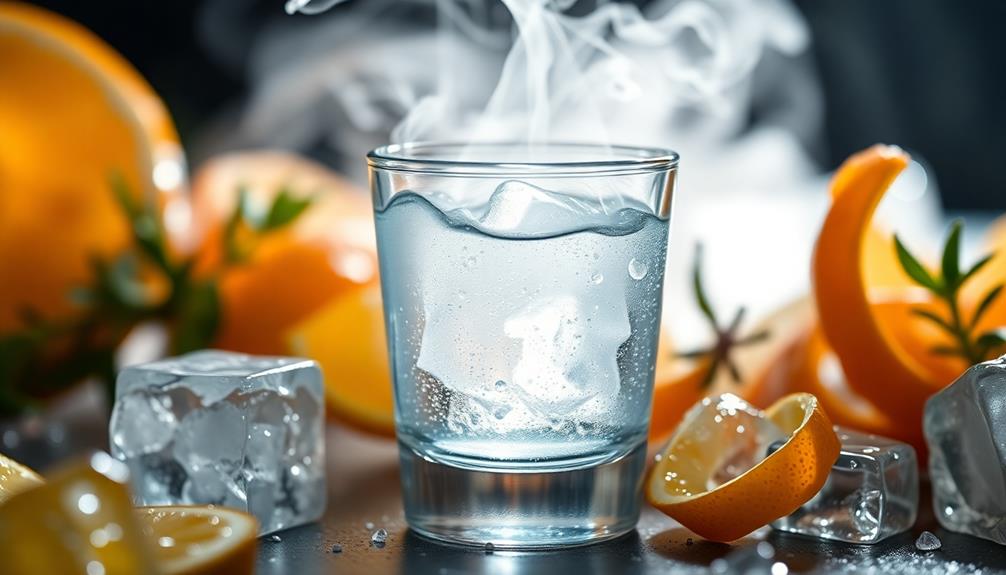
When you think about vodka, you might picture a clear, colorless liquid that's often labeled as odorless. Vodka is a clear spirit that many people enjoy in cocktails or on its own. You might even have heard it described as having a scent similar to rubbing alcohol or pure ethanol. This leads many to believe it doesn't have much of a smell at all. However, connoisseurs of vodka often argue that it can have subtle aromas, depending on the brand and distillation process. Some higher-end vodkas may even carry delicate herbal or floral notes—perhaps reminiscent of what iris flowers smell like. These nuances can be hard to detect for the casual drinker but add complexity to the spirit for those with a more refined palate. Despite its reputation for being neutral, certain vodkas possess a surprising depth of character. In some premium varieties, you may even find balsam aroma characteristics, which can impart a subtle warmth and resinous quality to the spirit. This added complexity elevates the drinking experience, making these vodkas a favorite among aficionados who appreciate more than just its smoothness.
Interestingly, the aroma of vodka can be characterized as "diluted ethanol," which means it lacks the bold fragrances you'd find in other spirits like whiskey or rum. If you've ever tasted high-quality vodka, you might notice a smoother aroma compared to cheaper brands, which can make a big difference in your drinking experience.
While pure vodka is clear and typically doesn't produce a strong smell after moderate consumption, drinking too much can lead to noticeable breath and skin odors.
Plus, the ingredients used in vodka, like corn or rye, can change its scent, especially if you drink more. Understanding these factors can help you appreciate vodka even more!
Description of the Smell

The smell of vodka is often described as a faint, clean scent reminiscent of diluted ethanol. When you first take a whiff, you might notice that it has a light aroma similar to rubbing alcohol. Many people think vodka is odorless, but if you drink vodka, especially in larger amounts, that scent can become more noticeable.
Different brands of vodka can smell quite different from one another. High-quality vodka usually has a smoother and less harsh scent compared to cheaper options, which might've a more pronounced odor. The ingredients used to make vodka, like corn, rye, or grapes, can also play a role in its smell, especially after you've consumed it.
After you take a shot, the smell can linger on your breath for about an hour, and if you drink vodka in greater quantities, the odor might stick around for 12 to 24 hours.
Source and Composition
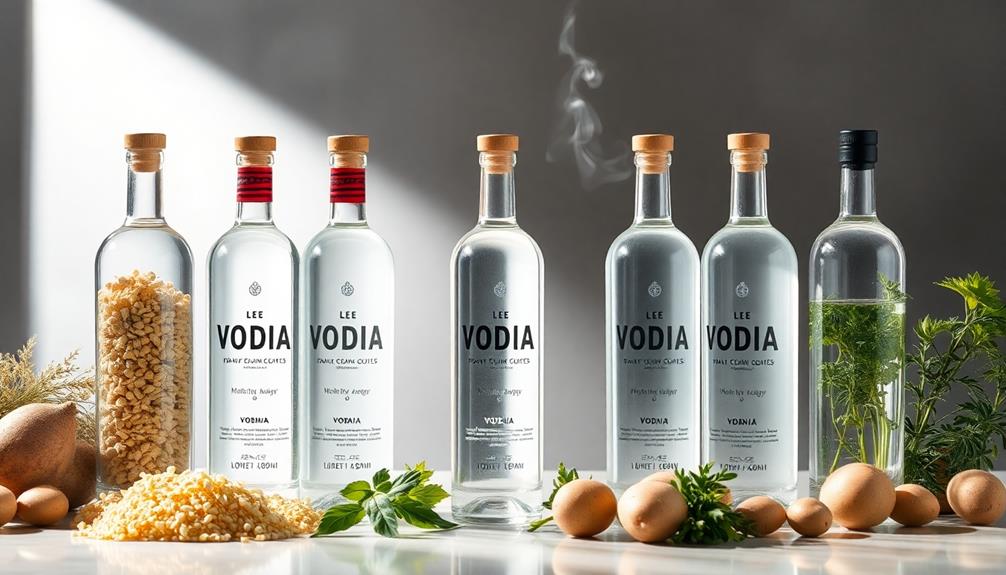
Vodka's source and composition play a crucial role in shaping its distinctive characteristics. Typically, vodka is made from grains or potatoes, which gives it a neutral aroma and flavor. When you sip vodka, you might notice that any original scents from these ingredients are mostly removed during the distillation process. This is why vodka is often clear and has minimal scent.
Pure vodka is usually odorless because it goes through multiple distillations. However, if you choose a lower-quality vodka, it may still have some lingering smells from its base ingredients. When people think about vodka's smell, they often compare it to diluted ethanol or rubbing alcohol, especially after drinking too much.
Interestingly, ingredients like corn, rye, or even grapes can add scent, but high-quality distillation neutralizes these aromas.
Typical Scenarios or Environments

Imagine walking into a bustling bar on a Friday night, where the air is thick with a mix of laughter, music, and the aroma of various drinks. As you settle in, you might notice that the smell of vodka isn't as strong as you'd expect.
In crowded places, the breath smell of vodka can blend with other scents, making it harder to detect. When vodka is served chilled, its scent often gets minimized, especially compared to warmer drinks.
If you're at a party enjoying vodka neat, you'll catch a more pronounced aroma. Here, the subtle ethanol scent can be quite noticeable, especially if there are no mixers to mask it.
At special events like vodka tastings, the atmosphere changes. Enthusiasts savor the spirit, allowing them to identify the differences between premium and low-quality brands.
In these settings, the vodka's aroma takes center stage, encouraging you to appreciate its unique characteristics.
After a night out, you might even notice the lingering smell of vodka in the air, combining with food and the overall buzz of the crowd.
It's all part of the vibrant experience that comes with enjoying this popular spirit.
Emotional or Cultural Associations
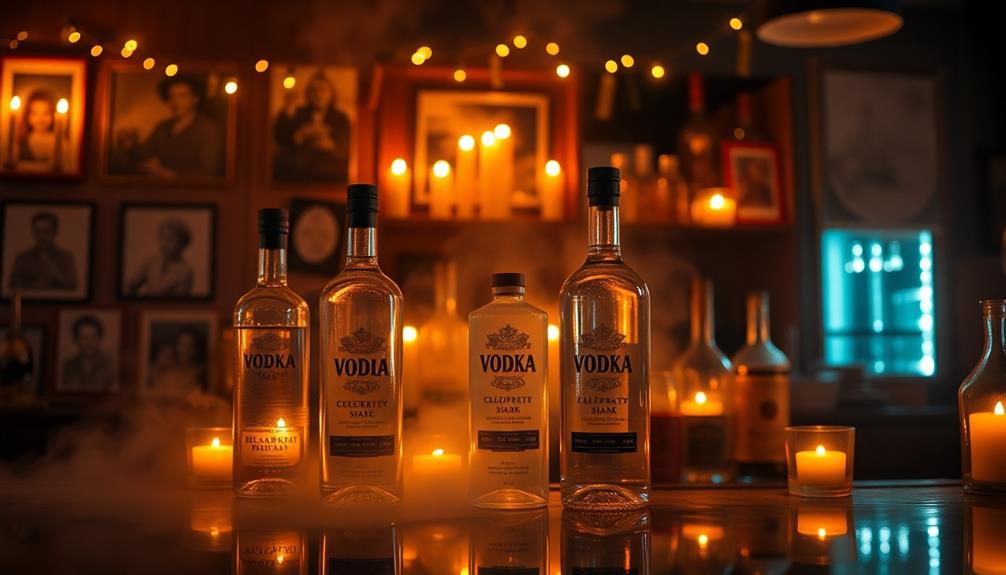
Walking away from the lively atmosphere of a bar, you might start reflecting on how vodka is intertwined with various emotional and cultural experiences. In many cultures, vodka isn't just a drink; it's a social ritual. You'll often find it shared with pickled cucumbers or herring, which help make the entire experience richer.
However, vodka can also stir up mixed feelings. Maybe you've had a night where too much vodka led to regret or a bad hangover. Those memories can create a bias against its smell.
Cultural practices shape how people view vodka too. Some folks believe vodka should be enjoyed neat, emphasizing its purity. This focus on savoring its unaltered form helps make the aroma more special.
Yet, perceptions can vary. While some see vodka as a staple spirit, others might associate it with negative experiences, like the unpleasant breath odor after a wild night. These emotional connections can deeply influence how you perceive its scent, turning it into a symbol of joy or a reminder of past mistakes.
Ultimately, vodka's smell can spark a range of feelings, making every sip a personal journey.
Health or Safety Considerations
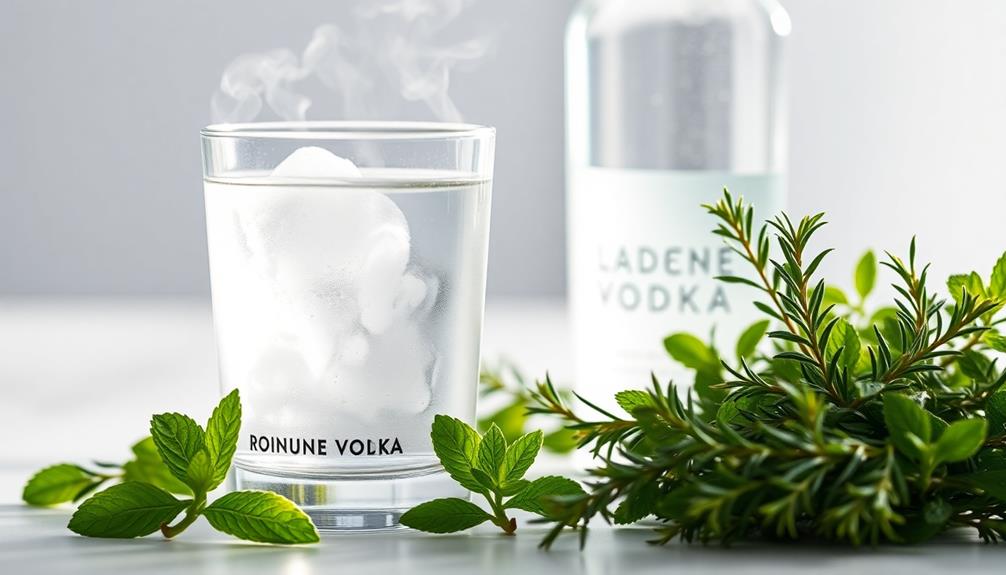
Consuming vodka requires mindfulness, especially when considering its health and safety implications. If you choose to drink vodka, moderation is key. Too much can lead to unpleasant breath and skin odors, as your body breaks down the alcohol. You might notice the smell after just one shot, which can linger for over an hour. If you drink more, the scent can stick around for up to 24 hours!
Even though vodka is clear and may seem odorless, excess consumption can make its scent noticeable, especially if it's mixed with certain ingredients. To help mask the vodka smell on your breath, drinking water, chewing gum, or eating strong-flavored foods like peanut butter can be useful tricks.
It's important to be aware of your limits. Drinking too much not only affects how you smell but can also lead to health issues and awkward social situations.
Final Thoughts

Being mindful of how vodka affects your breath and body is just one aspect of enjoying this popular spirit. Vodka is known for its neutral scent, often compared to rubbing alcohol. While a single shot may not smell, drinking too much can lead to noticeable odors. This is especially true if your vodka is made from ingredients like corn or rye, which might add a slight scent.
If you're worried about vodka breath, there are simple ways to help. Drinking water can keep you hydrated and may reduce the smell. Chewing gum or sipping coffee can also mask any lingering odors. However, the best solution is time; your body needs to metabolize the alcohol completely.
It's crucial to know your limits. When you drink responsibly, you'll enjoy vodka without the side effects of bad breath or lingering scents.
Frequently Asked Questions
How Would You Describe the Smell of Vodka?
When you think about vodka's smell, you might notice it's often described as a faint, diluted ethanol aroma. It can remind you of rubbing alcohol, lacking the distinctiveness found in other spirits.
What Is the Aroma of Vodka?
When you think about vodka's aroma, you might notice it's quite neutral, often resembling diluted ethanol. It lacks strong scents, making it feel less distinctive compared to other spirits, which some find unappealing.
Can You Smell if Someone's Been Drinking Vodka?
Yes, you can smell if someone's been drinking vodka, especially after excessive consumption. The odor might linger on their breath or skin for hours, making it detectable even if they've only had a few drinks.
Does Vodka Smell Like Hand Sanitizer?
Yes, vodka can smell like hand sanitizer due to its high ethanol content. Both have sharp, alcohol-like scents, but vodka's aroma is often more neutral, lacking the added fragrances found in many hand sanitizers.
